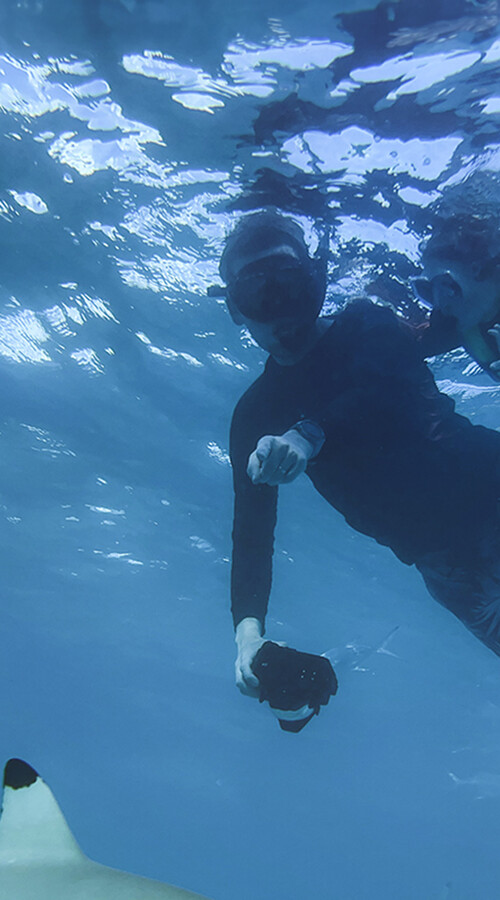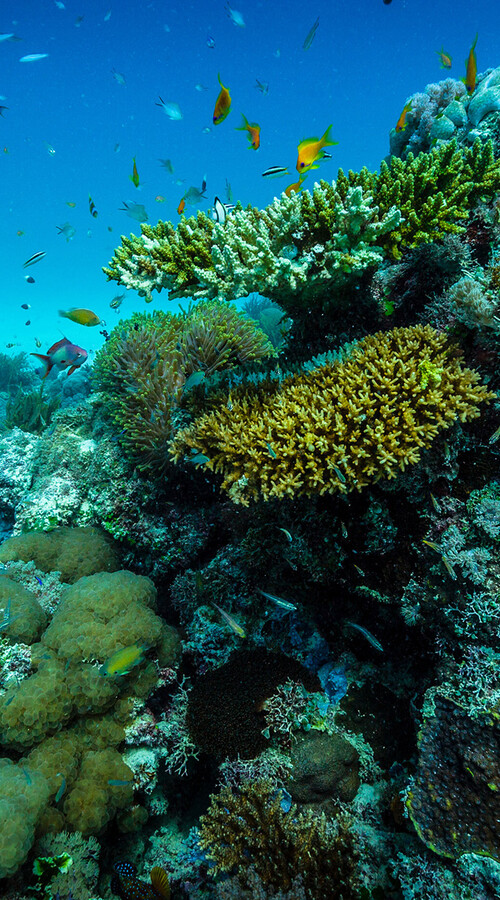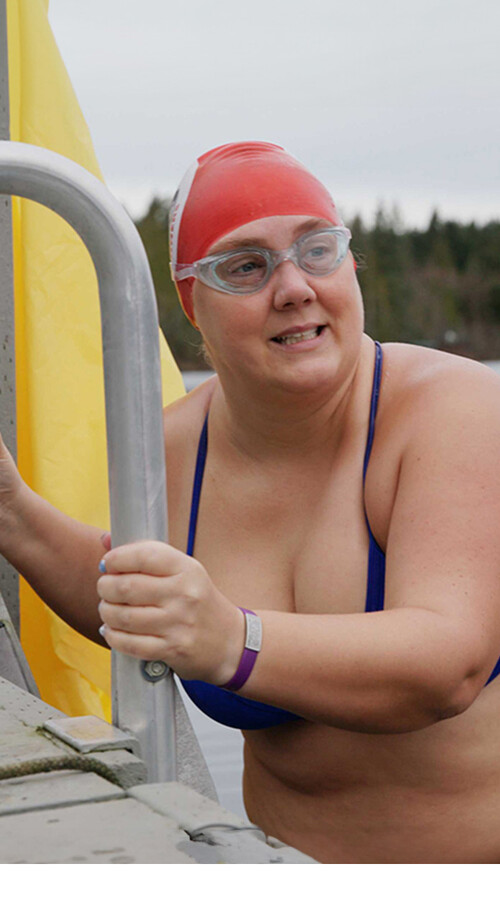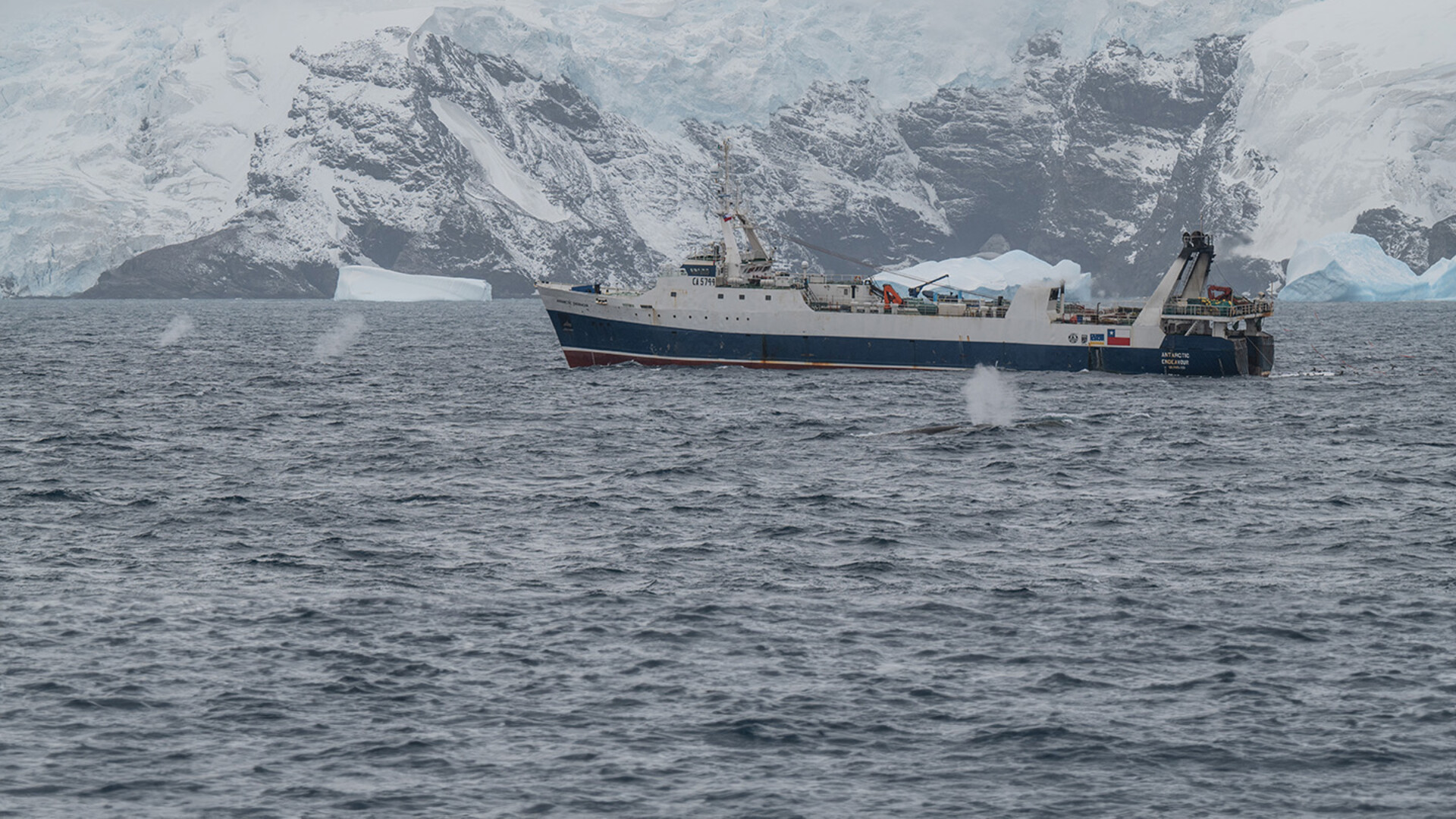
In conversation with Peter Hammarstedt
The Antarctic continent is protected from exploitation by an international treaty, but the Southern Ocean that surrounds it is part of international waters. Because there are far fewer rules than in national territories, commercial krill fishing there is currently booming.
Sea Shepherd has been fighting for the protection of the fragile Antarctic ecosystem for several years. Along with Captain Peter Hammarstedt, Director of Campaigns at Sea Shepherd, we look back at the most important campaigns and their successes. We also reveal the reason Sea Shepherd must once again set course for the Antarctic despite all they have accomplished.
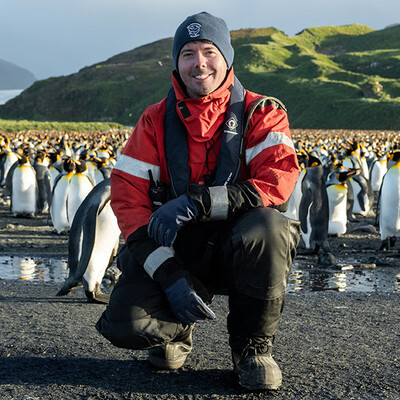
Peter Hammarstedt
He is the Director of Campaigns at Sea Shepherd Global and has been advocating for the protection of the oceans for 20 years. In 2014/15 he pursued the illegal fishing trawler 'Thunder' aboard the 'Bob Barker'. In 2016, he was awarded the Winsome Constance Kindness Gold Medal for Humanitarian Service.
Krill
Krill is a crucial part of the food chain and mitigates greenhouse gases by consuming carbon-containing algae and excreting CO2 in a form that is harmless to climate change. These crustaceans are processed into omega-3 supplements and feed additives for salmon farms, despite the availability of plant-based alternatives.
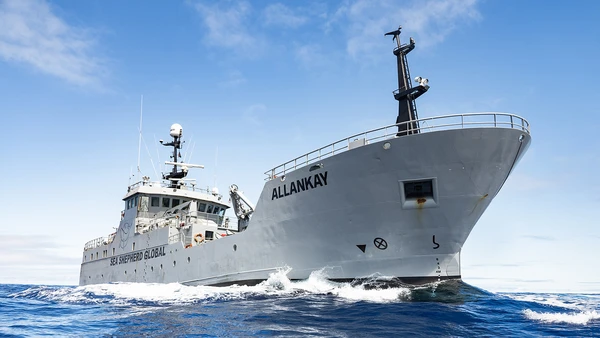
The hunt for whalers
The Antarctic and the environmental protection organization Sea Shepherd have a long and sometimes turbulent history. Sea Shepherd’s methods are controversial, but their successes are impressive. "We spent 15 years chasing Japanese whaling ships around the frozen continent of Antarctica. Then the government of Japan was brought to court by the governments of Australia and New Zealand, and the International Court of Justice ruled that whaling was illegal. So, we shut down whaling in the Antarctic." This ruling was made in 2014, and Peter Hammarstedt remains justifiably proud of it.
Although the international whaling agreement has been in force since 1986, no one in the Antarctic had ensured that it was actually adhered to—with the exception of Sea Shepherd. They consistently interfered with the whalers' efforts by intercepting their harpoons or preventing them from bringing their prey on deck. But even without the whalers, there were other dangers lurking in the Antarctic, so the environmentalists next took on the fishing vessels that were targeting Patagonian toothfish and Antarctic toothfish in the Southern Ocean with huge gillnets and without a permit.
Chasing the Thunder
For 110 days, the Sea Shepherd activists hunted the Thunder, probably the most notorious trawler of all, until its captain sank the ship right before their eyes. Long-time fans of the International OCEAN FILM TOUR will remember the exciting documentary ‘Chasing the Thunder’ from 2018. Peter Hammarstedt recalls: "We generated a huge amount of media attention, which ultimately led to governments around the world withdrawing the Thunder's five sister ships from service. Once again, we shut down illegal fishing in the Antarctic."
Once again, we shut down illegal fishing in the Antarctic.
 Peter Hammarstedt
Peter Hammarstedt
Illegal trawlers
In the years that followed, the Sea Shepherd fleet increased its patrols off the west coast of Africa. The aim here was also to shutdown illegal trawlers and, at the same time, give the local fishermen a chance to make a living.
Peter continues: "A local fisherman once said to me, 'When the big boat comes, the trawlers leave.' He was referring to our ship." Statements like these validate his work at Sea Shepherd—and have done so for 20 years: "The reason I joined Sea Shepherd is because I care about results, and Sea Shepherd is a results-driven organization."
Sea Shepherd's journey
Since its founding in 1977, Sea Shepherd has never seen itself purely as a protest organization but always as a direct-action organization. In other words, they wanted to actively prevent poaching and the destruction of habitats. The methods they used were criticized by other environmental protection organizations. Sea Shepherd alone is responsible for sinking ten whaling ships between 1979 and 1998. That was 26 years ago—enough time to rethink its own actions.
"We were more narrowly-focused in the past. For example, we only campaigned for whales in the Antarctic or for seals in Canada. Now we are concerned with protecting entire ecosystems," says Peter Hammarstedt. In the meantime, Sea Shepherd no longer wants to ignore the human factor: "We understand that our actions have an impact on local communities and why they have to be stakeholders. Conservation is still our primary focus, but we are saving more animals than ever before and also helping people in vulnerable countries at the same time."
This attitude also benefits Sea Shepherd in its cooperation with other organizations. "Before our hunt for the Thunder, no other NGO or government would welcome us," recalls Peter Hammarstedt. "We were the dinner guest that no one had invited. But now we're sitting at the table, and other people recognize that we offer something that no one else can."
Current campaigns
The fight against illegal fishing and whaling in the Antarctic and off the west coast of Africa is only a small part of Sea Shepherd's worldwide activities. Twelve ships are currently in operation, with twelve employees coordinating the missions from land. However, most of the activists are volunteers, either with the umbrella organization Sea Shepherd Global or with local chapters, such as Sea Shepherd Germany. In this way, the NGO ensures that the donations are not swallowed up by a huge administrative apparatus but actually benefit the campaigns.
With its current initiative, which is the focus of the film ‘The Return to Antarctica’, Sea Shepherd wants to protect some of the smallest marine creatures in the Southern Ocean—the Antarctic krill. These tiny crustaceans are an essential part of the ecosystem there. Not only are they the primary food source for whales, penguins, and seals, but they also remove greenhouse gases from the atmosphere.
Krill fishing is banned in most national waters, but in the Antarctic, it is practiced on a grand scale—legally. Sea Shepherd wants to take action against this, but in a different way to previous campaigns. "The krill fishermen are not breaking any laws," says Peter Hammarstedt. "That's why we need a different strategy; we need to change the laws."
We have to change the laws.
 Peter Hammarstedt
Peter Hammarstedt
First small successes
The fact that the Commission for the Conservation of Antarctic Marine Living Resources (CCAMLR) decided in 2023 not to increase the catch quota for krill in the Antarctic is already the first small success of Sea Shepherd's campaign. For Peter Hammarstedt, the next steps are already clear: "We must ensure that marine protected areas are established." If a trawler were to fish in such a protected area, there would again be a legal basis for taking action against it.
So, when marine protected areas are discussed, Sea Shepherd is now at the table. Yet, it is still important for them to be active on the ground and document what is happening in the Southern Ocean. "There are several groups and pro-conservation countries that are pushing for protective measures," says Peter Hammarstedt, "but they need the imagery to tell the stories of why these places need to be protected, and we can play a critical supporting role in that."
The film ‘The Return to Antarctica’ is therefore just one of many pieces of the puzzle for the protection of Antarctica. We are delighted to be able to show the film in this year's program.
